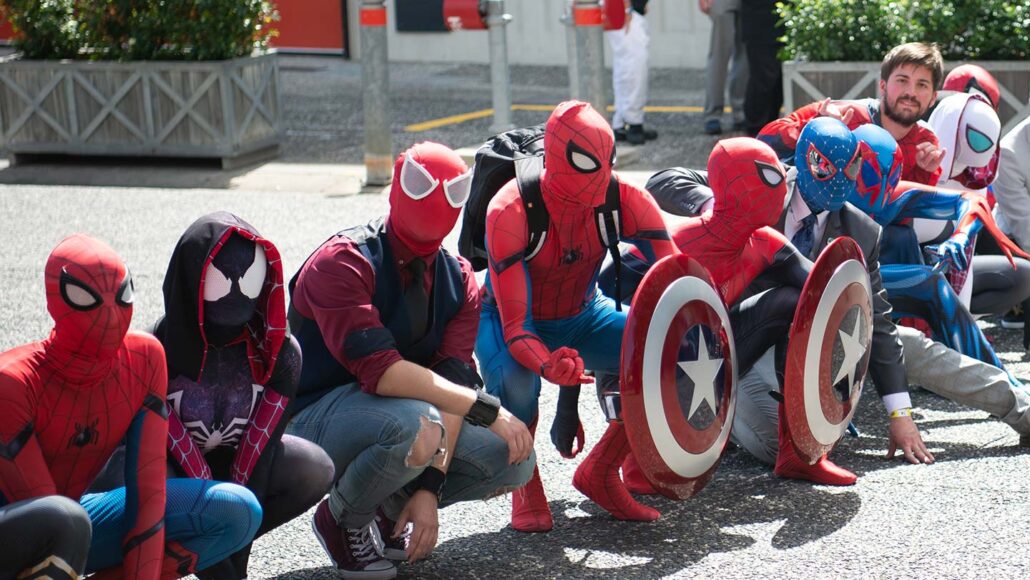Questions for ‘Why fandom feels good — and may be good for you’

Fellow Spider-Man fans pose in September 2019 for a group photo at OzComicCon in Sydney Australia.
Tranquil Night/Flickr (CC BY-SA 2.0)
To accompany ‘Why fandom feels good — and may be good for you’
SCIENCE
Before Reading:
- List three of your favorite fictional movies, books or shows. Pick one and describe how this fiction makes you feel. For example, does it make you feel joyful? Afraid? Suspenseful? What is one positive outcome you get from enjoying this fiction?
- Do you think friendships form more frequently between people with similar interests or different interests? Support your answer with a personal story of a time you met a new friend or connected with a new group of people. Did you connect over similar or different interests?
During Reading:
- During which month does New York Comic Con take place?
- What two things do scholars hope to understand better by studying the many types of media fans?
- Why did Laramie Taylor and his team ask people to rate how much they agreed with various statements? What were two of those statements?
- According to studies, what two personality traits correlate with the tendency to become a fan? For one of those traits, explain the theory for why that trait might lead to becoming a “bigger fan.”
- While some personality traits are “related” to fandom, this doesn’t necessarily mean those traits cause stronger fandom. According to Taylor, what kind of study would be required to prove that certain personality traits cause stronger fandom?
- What is anticipation? In what way might anticipation of an event feel as good, or even better, than the actual event?
- According to one study, what effect did spending time on creative pursuits have on the study participants’ feelings?
- In what way does fandom provide an opportunity for LGBTQ+ people to explore their identity? According to one study involving 3,500 participants, what percentage of those involved in online “fan communities” said this experience had contributed to developing their LGBTQ+ identity?
- One study found that supportive environments of fan communities help young fans reach identity milestones faster. Give one piece of evidence that supports that finding.
- Describe the relationship between fan connectedness and psychological well-being that Stephen Reysen and his team discovered.
After Reading:
- Imagine you are a school principal who wants to start a yearly Comic Con-inspired event. Your students spend a school day creating costumes of their favorite fictional characters. Then in the evening, students can socialize. Students watch their favorite shows, eat snacks, play video games and participate in games and costume contests. But the city’s mayor argues that such an event wastes a valuable education day. As the school’s principal, you argue that the event will promote student well-being. Write a persuasive letter to the mayor arguing why this event will be of value to your students. Use research from this story to support your position.
- This story mentions that fandom is not always “sunshine and rainbows.” Describe some ways that fan communities may cause harm rather than good. Imagine your best friend just joined a new online fandom community. But your friend shares with you her concerns that this community may be harmful. What kinds of red flags would you advise your friend to watch for that would indicate that this community may be harmful?